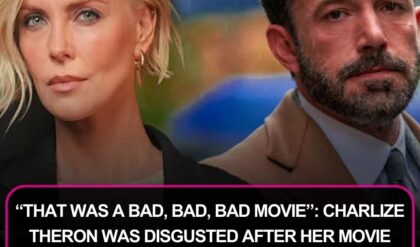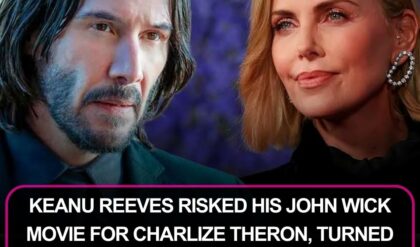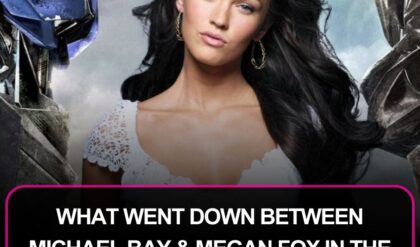:max_bytes(150000):strip_icc():format(webp)/charlize-theron_l-7c945aa84bc2458a949774b241418d09.jpg)
PHOTO: AMY SANCETTA/AP
Earlier this week, EW.com caught up with Charlize Theron, who was in Park City promoting Sleepwalking, a drama in which she plays the unstable, absentee mother of a 12-year-old girl (Bridge to Terabithia‘s AnnaSophia Robb). Theron also served as a producer on the film, just as she did on 2003’s Monster, the dark drama for which she won a Best Actress Oscar. The thoughtful star shared her feelings about how she chooses her roles, the ways in which women are portrayed in movies, and whether her increasing workload behind the camera may one day include directing.
ENTERTAINMENT WEEKLY: What was your emotional connection to the material?
CHARLIZE THERON: I think as an actor you’re incredibly emotionally attached. Maybe it’s me. I’ve been incredibly lucky in that I was able to go and do this movie I really wanted to go and do. When I started out, I was more than willing to pay my dues and just get out there — you just kinda get yourself out there. And, you know, from the first film I did, 2 Days in the Valley, from there on out, it’s been a choice I’ve really wanted to make. So I’ve always been emotionally attached to the material. And I guess when I’m producing I feel more of a responsibility because I’m taking somebody’s money. But it’s not like there’s an emotional scale.
What specifically resonated with you about this character?
I’ve never been driven by box office. When people say, ”What’s your favorite kind of role to do?” I don’t have anything like that in my head.
Are there general themes that intrigue you in the movies you choose?
The only correlation in all of it would have to be the human condition. I’m fascinated by it. By how cruel we can be and how hopeful we can be. I’m also fascinated by the extremities that we as humans put ourselves through. I just finished a film with Will Smith called Hancock. And I’m sure people assume I did it because it’s a big Will Smith movie. But again why I did it is that it deals with the human condition in an interesting way. And flawed people. I should just say ”real people.” Because we’re all flawed. And here’s the irony: I would love to do a comedy. It’s not like I’m running away from them or anything. I am obviously not on the top 10 list of actresses to go out to. And I don’t really want to go do a B-comedy just for the sake of doing a comedy. And hopefully now that I’m producing I can develop my own material.
Oftentimes, you play flawed women.
I think it’s interesting that women, by nature, are way more conflicted than men. This is, like, fact. And yet we don’t get those characters. I realized when I made Monster, the reaction was so strong because, in Hollywood terms, that should have been Robert De Niro. That’s the kind of role Robert De Niro would get — the guy that’s not really a good guy. He does really f—ed up things. But at the same time, you see him as a human being. I think those roles are incredibly rare for women. And you can’t really just blame Hollywood because Hollywood is just making what society wants. In our society, we don’t want to see our women that way. We want to see our women as good mothers, nurturers, good lovers, homemakers, wives, daughters.
NEXT PAGE: ”No matter how much you hated Aileen Wuornos, you had to come away with a little part of you that says, I understand”
ENTERTAINMENT WEEKLY: But women might want to see themselves that way, no?
CHARLIZE THERON: Yeah. And I think that fear of it being a high risk has now slowly gone away for me. Because no matter how much you hated Aileen Wuornos, you had to come away with a little part of you that says, I understand. And in this role in Sleepwalking, I’m sorry, I know it’s something we don’t want to talk about, but not every woman is a good mother. That’s really flawed and it’s really easy to judge that. But if you look at that person as a human being, you think, Oh my God, look at where you’ve come from and look at what you’ve done about it. That kind of insight makes it very interesting for me as an actor to play a woman that’s very flawed.
Did producing feel different this time since your role wasn’t so all-consuming, like it was on Monster?
I found them very similar. I’m always on set. I flew up six weeks before these guys came on to do a 16-week production. I wasn’t in every scene like I was in Monster, but what made up for that extra time was working with AnnaSophia Robb. And I really enjoyed that. Anna and I became really good partners on the film. And then the fact that I was playing her mother, I wanted her to have a good experience. It’s something to ask a 12-year-old to come and do really heavy material, and I want to be able to sleep with myself at night. This is a young girl who is going to have an extensive career, and I wanted this to be this great opportunity for her, where she learns a great deal and goes on and challenges herself. Straight off the bat, I said, ”I want to give you what I would want to have if I was your age.” So she felt safe but she also felt challenged. There were days where I sat her down and we had very…I kicked her ass. She’s just like me, always up to the challenge.
Have you thought about directing?
No. I think, for me, a producer is a very creative job. And I’m definitely not one of those producers who takes the money and says, ”Hey I’ll see you in Cannes!” I like the partnership, and I think the model for me was when I did Monster. That was an incredible partnership I had with my director, cast, and crew. Movies only get made when there is a great collaboration. There is no one man who makes the whole movie by himself. So that becomes a really creative role. Actors feed off each other. I’ve never been on a movie where the actors just stay in their trailers. I’m always out on set. And at the end of the day, if you’re doing that, you’ll have a great experience. That’s what it’s all about: the experience. I always think that when I’m on my deathbed I don’t ever want to remember what any movie made at the box office. But I know I will remember that one grip’s face or that caterer who made an amazing grilled-cheese sandwich. Those actors, those jokes, those memories are very valuable.





